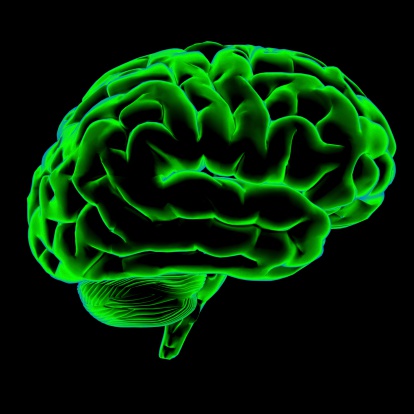A recent study at the Ernest Gallo Clinic and Research Center at the University of California at San Francisco has potentially identified the brain pathway that may be one of the root neurological causes of alcoholism. The researchers hope that this discovery could lead to a potential treatment option for alcohol abuse disorders or even other addictions.
A recent study at the Ernest Gallo Clinic and Research Center at the University of California at San Francisco has potentially identified the brain pathway that may be one of the root neurological causes of alcoholism. The researchers hope that this discovery could lead to a potential treatment option for alcohol abuse disorders or even other addictions.[1]
“We learned that when rats were exposed to the smell or taste of alcohol, there was a small window of opportunity to target the area of the brain that reconsolidates the memory of the craving for alcohol and to weaken or even erase that memory, and thus the craving,†said Segev Barak, PhD, lead author of the study.
That area of the brain, a pathway mediated by an enzyme known as mTORC1, was shown to respond to rapamycin as long as it was administered to the rat immediately after exposure to the smell or taste of alcohol. The drug is currently FDA-approved for preventing organ transplant rejection.
A Closer Look at the Research
 The study was broken up into multiple phases. During the first phase, the experimental rats were given the choice to freely drink alcohol or water for a period of seven weeks. During this period, the rats developed a high
The study was broken up into multiple phases. During the first phase, the experimental rats were given the choice to freely drink alcohol or water for a period of seven weeks. During this period, the rats developed a high The defining characteristic of any addiction is the inability to stop the impulse to use drugs or alcohol, despite knowledge of negative consequences.
preference for alcohol. In the following phase, the rats were given the opportunity to access alcohol for just one hour per day by pressing a lever. They were then forced to abstain from alcohol consumption for a period of 10 days.
During the next stage, the rats were exposed to the smell and taste of alcohol for five minutes; this triggered memories of their enjoyment of drinking. Researchers then scanned the brains of the rats and identified the neural mechanism for the reactivation of the memory of alcohol consumption – mTORC1 (which stands for mammalian target of rapamycin complex 1). The theory being that if the memory of substance abuse was removed, the cravings would also be removed, thus eliminating any chance of relapse.
In the final phase of the study, researchers attempted to prevent memory cues by inhibiting mTORC1 using rapamaycin. This led to an immediate prevention of relapse among the rats, which remained suppressed for up to 14 days, the conclusion of the study. This suggests that the rapamycin had a long-term impact.
The study was published online on June 23, 2013, in Nature Neuroscience.
More Work to Be Done
This study is an important first step in understanding the neurochemical triggers of addiction, but the authors have advised that additional research is still needed into not only the long-term effects of using rapamycin as an mTORC1 inhibitor, but also if rapamycin or any of the other mTORC1 inhibitors currently being developed by pharmaceutical companies will have similar effects on the human brain.
“One of the main problems in alcohol abuse disorders is relapse, and current treatment options are very limited,†Barak said. “Even after detoxification and a period of rehabilitation, 70 to 80 percent of patients will relapse in the first several years. It is really thrilling that we were able to completely erase the memory of alcohol and prevent relapse in these animals. This could be a revolution in treatment approaches for addiction, in terms of erasing unwanted memories and thereby manipulating the brain triggers that are so problematic for people with addictions.â€
Alcoholism is A Chronic Brain Disease
 The findings of the UCSF study align well with current research and knowledge of alcoholism as a chronic brain disease. The 2013 updated edition of the Diagnostic and Statistical Manual of Mental Disorders (DSM-5) lists substance use disorder (SUD) as a mental disorder. Categorical symptoms associated with the disorder include impaired control, social impairment, risky use and pharmacological criteria (which refers to tolerance and withdrawal).[2]
The findings of the UCSF study align well with current research and knowledge of alcoholism as a chronic brain disease. The 2013 updated edition of the Diagnostic and Statistical Manual of Mental Disorders (DSM-5) lists substance use disorder (SUD) as a mental disorder. Categorical symptoms associated with the disorder include impaired control, social impairment, risky use and pharmacological criteria (which refers to tolerance and withdrawal).[2]
While alcoholism or any addiction usually begins with a choice, once addiction takes over, an individual\’s ability to control his or her actions becomes impaired. Multiple brain imaging studies on addicts have shown physical changes to the areas in the brain that are responsible for judgment, memory, learning, decision making and behavior control.[3] The defining characteristic of any addiction is the inability to stop the impulse to use drugs or alcohol, despite knowledge of negative consequences.
Signs and Symptoms of Alcoholism
- Drinking Alone
- Drinking in Secret
- Blacking Out
- Inability to Control or Monitor Alcohol Consumption
- Hiding Stashes of Alcohol
- Nausea, Sweating and Other Withdrawal Symptoms When Not Drinking
Despite what some believe, taking control of an addiction and ceasing to abuse drugs or alcohol once the addiction has set in is not as simple as a choice. As the UCSF study points out, the brain uncontrollably responds to certain triggers. For the rats, these consisted of the smell and taste of alcohol. While this would likely also trigger the need to drink in an alcoholic, other potential cues may include a person\’s environment, a certain mental state (anger, depression, anxiety, etc.) or any number of other stimuli. Once the body (and thus the brain) has been conditioned to crave a certain object, it is very difficult to reverse and exercise control over this.
Unfair Stigma Attached to Alcoholism
 Despite volumes of research and scores of experts saying that alcoholism is a chronic brain disease that addicts have little to no control over, alcoholism is still stigmatized far more than other mental diseases.[4] This stigmatization is likely attributable to the public assigning some form of blame to alcoholics and drug addicts, as opposed to the way a person with ADHD, bipolar disorder or schizophrenia might be looked at.
Despite volumes of research and scores of experts saying that alcoholism is a chronic brain disease that addicts have little to no control over, alcoholism is still stigmatized far more than other mental diseases.[4] This stigmatization is likely attributable to the public assigning some form of blame to alcoholics and drug addicts, as opposed to the way a person with ADHD, bipolar disorder or schizophrenia might be looked at.
Stigmatization not only falsely vilifies addicts; it also makes them more ashamed of their condition, more likely to hide it and less likely to seek help.
Alcoholics are not bad people or people who are weak-willed. They are individuals who have fallen prey to a chronic mental disorder and need help in order to gain control over it and stop it from progressing.
Learn More About Alcoholism and Treatment at BHOPB
The professionals at Behavioral Health of the Palm Beaches have a thorough understanding about the disease of addiction and the toll it takes on an individual, one\’s family, friends, career, health and finances. Countless lives have been lost and/or ruined because of people\’s inability to gain control over deeply set in addictions. It\’s not their fault, as most addicts cannot overcome addiction without help.
Behavioral Health of the Palm Beaches is committed to helping individuals and families fight back against alcoholism and addiction. We conduct our own research, use evidence-based rehab strategies, provide mental health treatment and a medically monitored detoxification. We are in the business of helping patients rebuild their lives and gain a second chance in sobriety.



